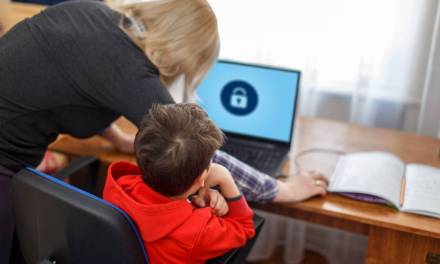With the introduction of the digital age, online safety for children has become subject to an influx of threats from a whole host of intimidatory factors.
Unsurprisingly, COVID has heightened safety concerns, especially for children and it is our mission to ensure that their online safety is secured to the best standard ultimately to save lives.
The harsh facts about safeguarding online
The BBC produced an article stating that:
“child deaths increased from 89 to 119 and those seriously harmed rose from 132 with 153 compared with the same period in 2019.”
This is according to data from The Child Safeguarding Practice Review Panel when conducting a report on the number of serious incidents reported from April last year. So why is this a concern?
Evidently, an increase in child deaths is the significant issue as another child death becomes an additional statistic yet, it doesn’t correlate to what effect it has internally on all parties concerned. With the emerging digital age, it is vital that everything online is scrutinised and it is our responsibility as educators to guarantee a child’s safety.
Reducing the number of deaths is the obvious priority but subsequent factors of the online world such as crime, county lines, sexual abuse and grooming all have increased. A survey produced by Children’s Commissioner for Wales Professor Sally Holland stated that:
“four in 10 of the 17-year-olds taking part in her survey said they felt lonely most of the time while 30% of 17 to 18-year-olds said they felt worried most of the time.”
Isolation and loneliness will lead young children to become involved in dangerous predicaments as their intrigue is raised. This is where online safety is paramount as it is an accessible route for criminals to target potential victims to exploit.
According to the Children society:
“County Lines has contributed to 807% increase in children referred for support by councils in relation to modern slavery.”
With this excessive increase, it demonstrates how important safeguarding is in online education. Gangs will utilise social media as a ploy to flaunt a lavish lifestyle and lure young children into Country lines due to their naivety and inability to comprehend that they are indeed victims.
Not only will children be exploited for financial gain, but online it allows predators to seek out young vulnerable people for their own gratification through grooming. Last year the NSPCC stated the Police recorded:
“over 10,000 online child sex crimes in a year for the first time.”
But not only in the UK is this prevalent, the problem is increasing Internationally. The Times reported that in Thailand during the pandemic:
“Police and child protection organisations say that cases of abuse, including the extracting of pornographic images from children, increased last year by as much as 40 per cent.”
With less school time because of recent lockdowns, it has led to less education whilst increasing vulnerability. With schools now reopen it is critical that children are being supervised.
In addition to this, the UK has seen an increase in radicalisation. COVID has led to more seclusion resulting in close relatives and friends taking advantage of young children. Sky reported that over the past 2 years there has been:
“more than 1,500 children under the age of 15 [who] were referred to the Prevent counter radicalisation programme.”
Ultimately the diminishment of social interaction due to COVID that young children will have with their peers and teachers leaves them exposed, further highlighting the importance of safeguarding young children online.
Educational barriers need to be broken online
Online education is a valuable asset as it enables learning remotely and breaks down the barriers at home unveiling a glimpse of what may be going on behind close doors.
Unfortunately, not all children can be monitored online due to a number of factors, one including, inadequate resources due to socio-economic backgrounds.
A tragic example of safeguarding importance lies with Chadrack Mbala Mulo, 4. Had there been sufficient communication between his school and home prior to his mother’s death, he may still be alive. He died from starvation as a result of being unable to feed himself due to him being mute and having autism.
His unexplained absences, which were not pursued in thorough depth, ultimately led to his death. Remote online education would have ensured that his scarce logins on education portals would have raised flags and an investigation would have occurred properly.
Sadly, this is just one case of thousands who are at risk in similar situations exemplifying why safeguarding children who are learning online is vital.
Educating children about the dangers online is the key
Our opinion is that educating young children before they can be exposed to the dangers will be the best option to minimise exploitation.
Here at EDClass It is our mission to guarantee that every child home or abroad gets the chance to learn safely with our DBS checked staff ensuring remote learning is completed in a correct and secure manner.
All chats are recorded and sent to their corresponding schools’ server to guarantee safeguarding elements.
Our EDClass Designated Safeguarding Lead, Cara Radford, said:
“Safeguarding online is massively important especially during COVID when everyone is online. Pre-COVID, a lot of parents were looking into what their children were doing online but now parents are busy balancing working from home and parenting which has meant more opportunity for people that are looking to groom children.So, educating children into not befriending people they don’t know on forums and not disclosing personal information is really important, more so now than ever.”
You can be informed on what EDClass offers in regards to safeguarding here.
If you would like some more information you can call us on 01909 568338 or e-mail us at mail@edclass.com.
Or contact us here.










